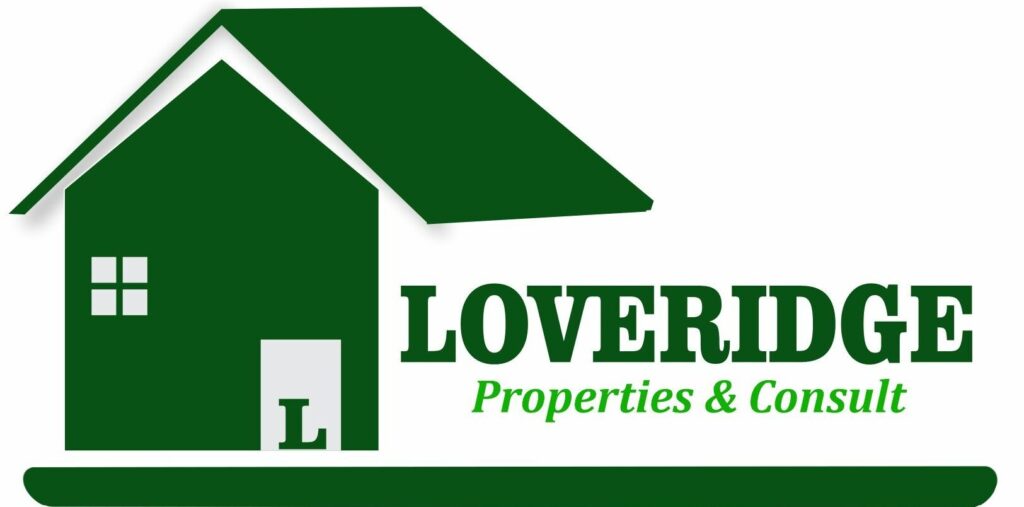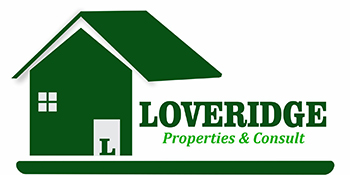Emerging Trends: Dubai Real Estate in the 21st Century
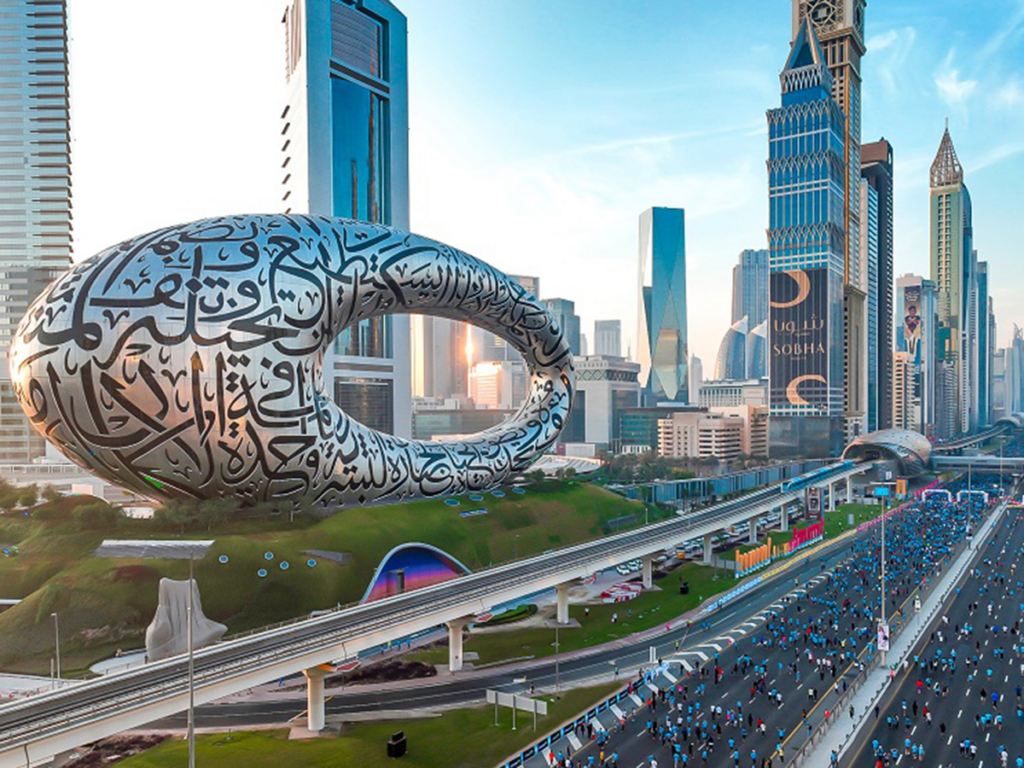
In the ever-evolving landscape of Dubai’s real estate, the 21st century has brought forth a wave of transformation and innovation. As we stand on the cusp of a new era, let’s delve into the emerging trends that are reshaping the property market in this cosmopolitan hub. 1. Sustainable Living Spaces: Dubai, known for its architectural marvels, is embracing sustainability in real estate. From eco-friendly materials to energy-efficient designs, developers are incorporating green practices, aligning with global efforts for a more sustainable future. Buyers are increasingly drawn to residences that seamlessly blend luxury with eco-conscious living. 2. Smart Homes and Technology Integration: The futuristic allure of Dubai extends to its homes, where smart technology is becoming synonymous with luxury. Home automation systems, security features, and energy management are seamlessly integrated into modern residences, offering residents unprecedented control and convenience at their fingertips. 3. Diversification of Offerings: Dubai’s real estate market is diversifying to cater to a broad spectrum of preferences. Whether it’s opulent villas on the outskirts or chic urban apartments with panoramic views, developers are crafting bespoke offerings to meet the varied tastes of a cosmopolitan population. 4. Co-living and Co-working Spaces: As the way we work and live continues to evolve, Dubai is witnessing a surge in co-living and co-working spaces. These developments foster a sense of community, offering shared amenities like communal workspaces, fitness centers, and social hubs, catering to the modern professional’s desire for connectivity and work-life balance. 5. Emphasis on Wellness Amenities: Dubai’s real estate developers are prioritizing residents’ well-being, integrating wellness amenities into their projects. From dedicated spa and fitness facilities to green spaces promoting relaxation, these developments acknowledge the importance of a holistic lifestyle in the fast-paced city. In conclusion, Dubai’s real estate landscape in the 21st century reflects a harmonious blend of tradition and innovation. As the city continues to push boundaries, these emerging trends not only redefine luxury living but also contribute to the overall allure of Dubai as a global real estate destination. The journey into the future of Dubai’s real estate promises not just homes but an experience that resonates with the spirit of the times.
Exploring the Booming Dubai Real Estate Market: A Haven for Investors
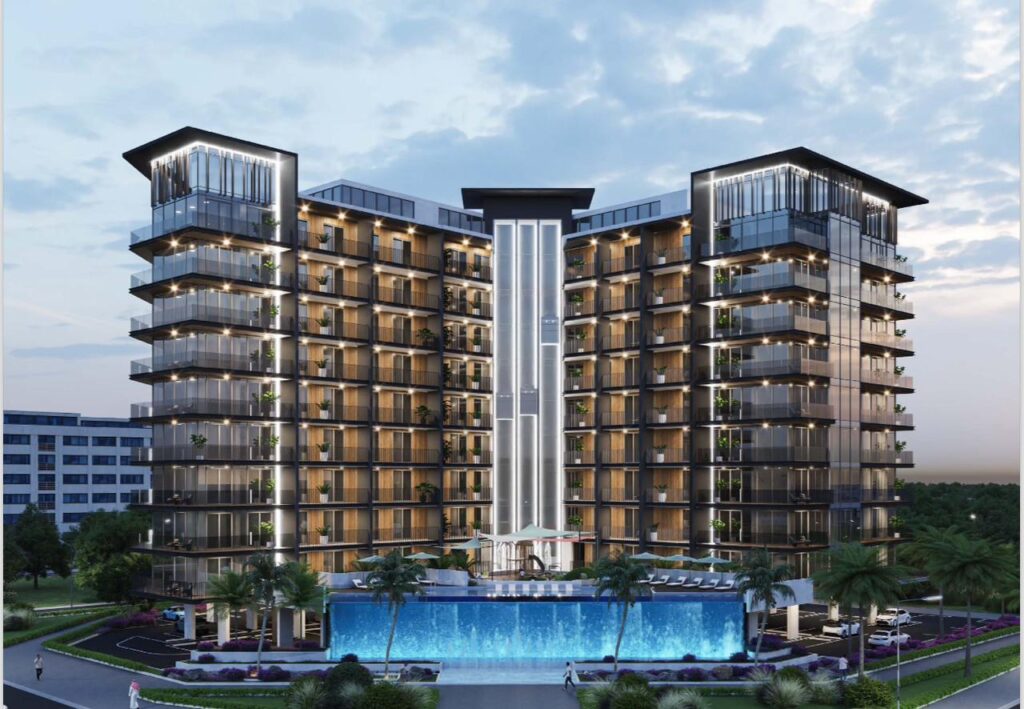
Dubai, the cosmopolitan city known for its stunning skyline, luxurious lifestyle, and vibrant culture, has emerged as a global hub for real estate investment. With its strategic location, favorable economic conditions, and visionary leadership, Dubai’s real estate market has grown exponentially over the past few decades. In this blog, we will delve into the key factors that make Dubai an attractive destination for property investment and explore the current trends shaping the market. Conclusion Dubai’s real estate market has established itself as a global investment destination, offering a combination of economic stability, visionary development projects, tax benefits, and strong rental and investment returns. With the government’s commitment to sustainable growth and continuous development, the market is expected to remain robust in the future. Whether you are a seasoned investor or a first-time buyer, Dubai presents a wealth of opportunities in the real estate sector, making it a haven for investors seeking long-term growth and profitability.
The Future of Proptech in Africa: Predictions and Trends
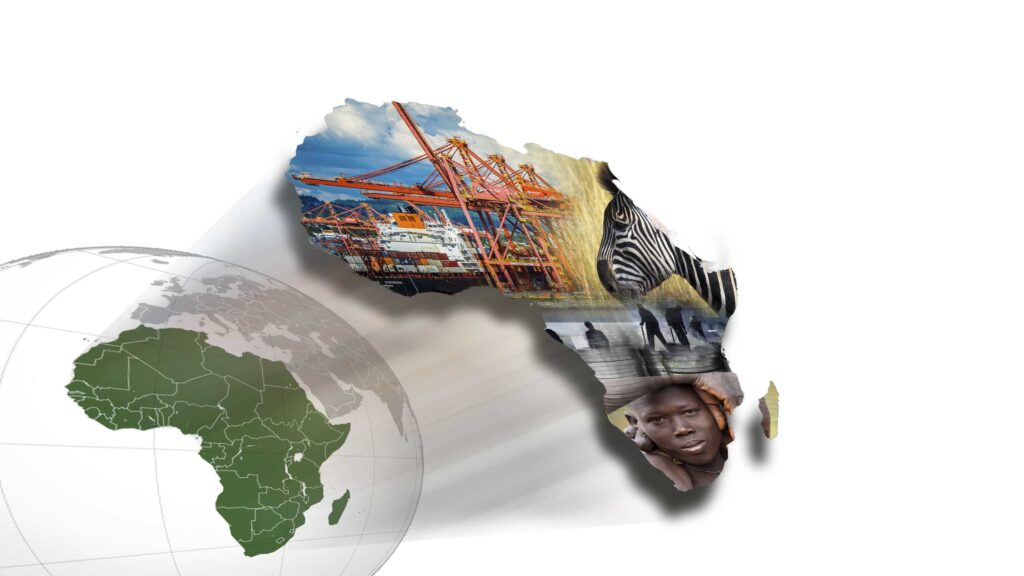
In recent years, Africa has shown great potential for growth in various sectors, including real estate. As the continent experiences socio-economic and demographic advancements, it becomes essential for real estate companies and investors to find innovative and sustainable ways to meet the increasing market demands. One significant component that will shape the future of the real estate industry in Africa is Proptech (Property Technology). Proptech refers to using technology to facilitate research, buying, selling, and management of real estate or properties. Key Predictions and Future Trends in Proptech in Ghana and Nigeria: Africa’s potential for socio-economic and demographic growth positions it as a promising market for the real estate industry. Proptech is expected to play a vital role in shaping the industry’s future in Africa, particularly in countries like Ghana and Nigeria. By embracing smart buildings, implementing property financing solutions, and adopting property blockchain systems, the African real estate market can thrive and attract increased interest from venture capitalists seeking to leverage its growth potential.
Successful Negotiations in Real Estate: Essential Strategies and Skills

Negotiations are a crucial part of the real estate industry. As a real estate professional, it’s essential to have the skills and strategies needed to negotiate successfully. Here are some essential strategies and skills that you need to have to be a successful negotiator in the real estate industry. Before entering into any negotiation, it’s important to do your research. Find out everything about the property you are negotiating for, the market, and the other party. This will give you a better understanding of the situation and enable you to negotiate from a position of strength. During negotiations, it’s essential to listen carefully to the other party. You can identify their wants, needs, and interests by doing this. Once you know what they want, you can use that information to your advantage and make a mutually beneficial deal. Communication is vital in any negotiation. Learn how to communicate your needs and interests clearly and concisely. This will help prevent misunderstandings and ensure everyone is on the same page. Don’t be afraid to be creative during negotiations. Look for alternative solutions that are outside the box but still meet the needs of both parties. This can lead to a win-win situation and a successful negotiation. Negotiations can take time, and patience is essential throughout the process. Rushing to make a deal could result in regrets down the line. Consider negotiating carefully and thoughtfully to ensure a successful outcome for everyone involved. In conclusion, successful negotiations in the real estate industry require careful research, active listening, effective communication, creativity, and patience. By mastering these skills and strategies, you can become a successful negotiator and achieve your real estate goals.
The Digital Transformation of Real Estate – PropTech

The real estate industry can no longer deny the impact of technology on its future, and PropTech is leading the way in a sustainable direction. PropTech refers to integrating innovative technology in the real estate industry to optimize operations, enhance tenant experience, and drive greener business practices. These technological shifts have gained significant momentum recently, allowing real estate operators to reduce their carbon footprint while cutting unnecessary expenses. Integrated tools such as IoT sensors, cloud storage, and AI have revolutionized how the sector approaches energy and resource management. IoT sensors monitor building systems, lighting, and heating to optimize energy use while reducing waste. Cloud-based storage systems support green business practices by replacing paper-based workflows with digital files accessible from anywhere with an internet connection. AI systems can reduce energy consumption, provide actionable data insights, and automate building systems to ensure energy- and cost-efficiency. Despite the clear advantages of these technologies, digital transformation has needed to catch on in the real estate industry. Many companies are reluctant to modernize existing systems and processes, partly because of fear, and other reasons include the assumed cost and infrastructure changes for implementation. Those companies, however, that have leveraged PropTech and adapted to these technologies stand to benefit financially and environmentally. It’s simply a win-win situation. Sustainable investment in digital integration reduces costs and attracts tenants who value sustainable workplace practices. The real estate industry is at a critical juncture to be environmentally responsible and stay relevant and competitive. Twenty-first-century companies must embrace digital transformation actively, with sustained investment in PropTech solutions, that will ultimately lead to a more sustainable future for the industry. Success and Benefits of PropTech for the Environment and Business PropTech has revolutionized the real estate industry by providing a more sustained approach to how corporations design and operate their buildings. Digital integration in the form of IoT sensors, cloud storage, and artificial intelligence (AI) has been instrumental in generating CO2 and expenditure savings while reducing consumption across the built environment. Sustainable investment in digital integration provides financial savings and attracts potential tenants who recognize the importance of implementing sustainable practices. Furthermore, PropTech has revolutionized how corporations view their carbon footprint and reduce their energy costs. The success of PropTech in sustainable practices has been proven, and many corporations have already seen the benefits of adopting it. Therefore, the future of sustainability in the real estate industry will continue to emphasize the role of PropTech in creating more sustainable practices. Conclusion In conclusion, incorporating PropTech technology has improved cost-effectiveness and significantly transformed the real estate industry toward a more sustainable future. The Real Estate industry is transforming through sustainable investment and PropTech. With digital integration, there are cost-saving opportunities, reduced energy consumption, and attraction of potential tenants. The proven success of these technologies is enhancing sustainability in the built environment, making it more efficient than ever before.
Building a Sustainable Future: The Rise of Green Real Estate in Ghana
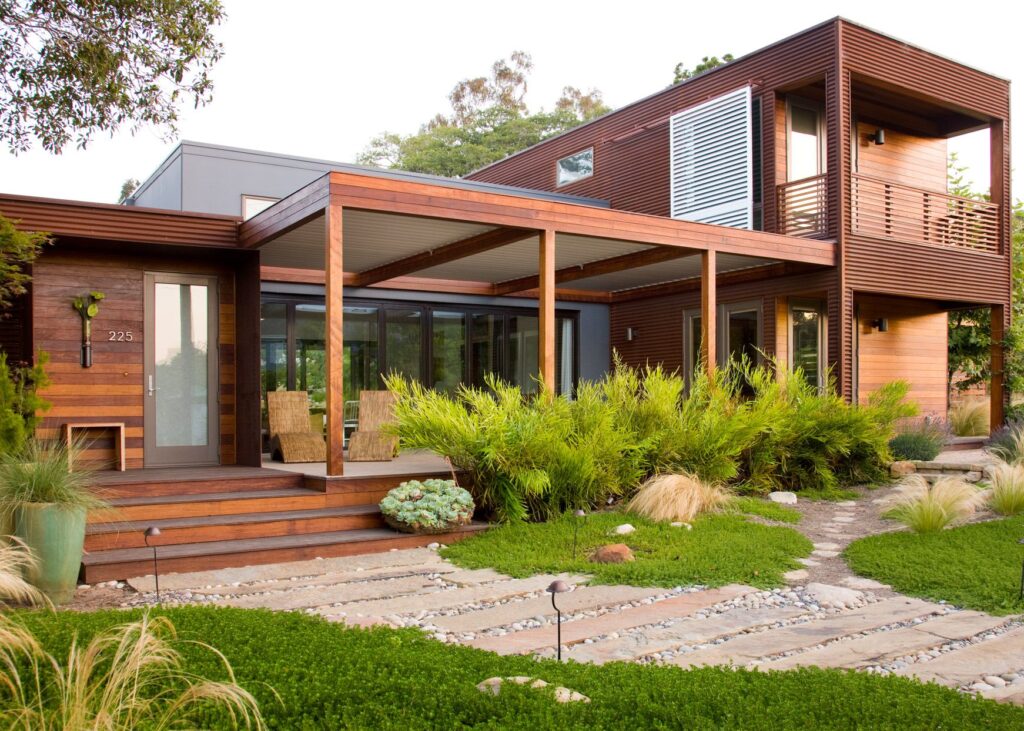
Introduction: Ghana, a country known for its rich cultural heritage and vibrant economy, is experiencing rapid urbanization and population growth. As the demand for housing and infrastructure increases, so does the need for sustainable real estate development. In recent years, Ghana has made significant strides in embracing sustainable practices in the real estate sector. This blog explores the sustainability of real estate in Ghana, highlighting the key factors driving this positive change. Green Building Practices: One of the cornerstones of sustainable real estate in Ghana is the adoption of green building practices. Developers are increasingly incorporating energy-efficient designs, utilizing renewable materials, and implementing green technologies. These practices not only reduce the environmental impact of buildings but also contribute to lower energy consumption and operational costs for occupants. Infrastructure Development: To support sustainable real estate, the Ghanaian government has been investing in infrastructure development. Improved roads, water supply systems, and waste management facilities enhance the livability of cities and make real estate investments more attractive. These developments also contribute to reducing the carbon footprint of urban areas. Renewable Energy Integration: Ghana boasts abundant renewable energy resources, including solar and wind power. Real estate developers are harnessing this potential by integrating renewable energy systems into their projects. Solar panels, for instance, are being installed on rooftops to generate clean energy for buildings, reducing reliance on fossil fuels and lowering carbon emissions. Affordable and Sustainable Housing: Addressing the housing deficit is a key priority for the Ghanaian government. Sustainable affordable housing initiatives aim to provide environmentally friendly and energy-efficient homes to low-income individuals and families. These projects incorporate sustainable building materials, energy-efficient appliances, and water-saving fixtures, making housing more affordable and environmentally responsible. Community Engagement: Sustainable real estate development in Ghana goes beyond the physical structures. It involves engaging with local communities to ensure their needs are met. Developers are working closely with communities to provide access to amenities, promote social inclusivity, and preserve cultural heritage. This collaborative approach fosters a sense of ownership and ensures that real estate projects align with the needs and aspirations of the people. Regulatory Framework: The Ghanaian government has implemented regulations and standards to promote sustainable real estate practices. These regulations cover areas such as energy efficiency, waste management, and environmental impact assessments. By enforcing these regulations, the government is creating a conducive environment for sustainable real estate development and ensuring long-term environmental and social benefits. Conclusion: The sustainability of real estate in Ghana is gaining momentum, driven by a combination of factors such as green building practices, infrastructure development, renewable energy integration, affordable housing initiatives, community engagement, and a supportive regulatory framework. While challenges remain, including access to financing and enforcement of regulations, the commitment to sustainability is evident. With continued efforts from the government, developers, and stakeholders, Ghana is well on its way to building a sustainable future where real estate development harmonizes with the environment and the needs of its people.
Lucrative Investment Opportunities in Ghana
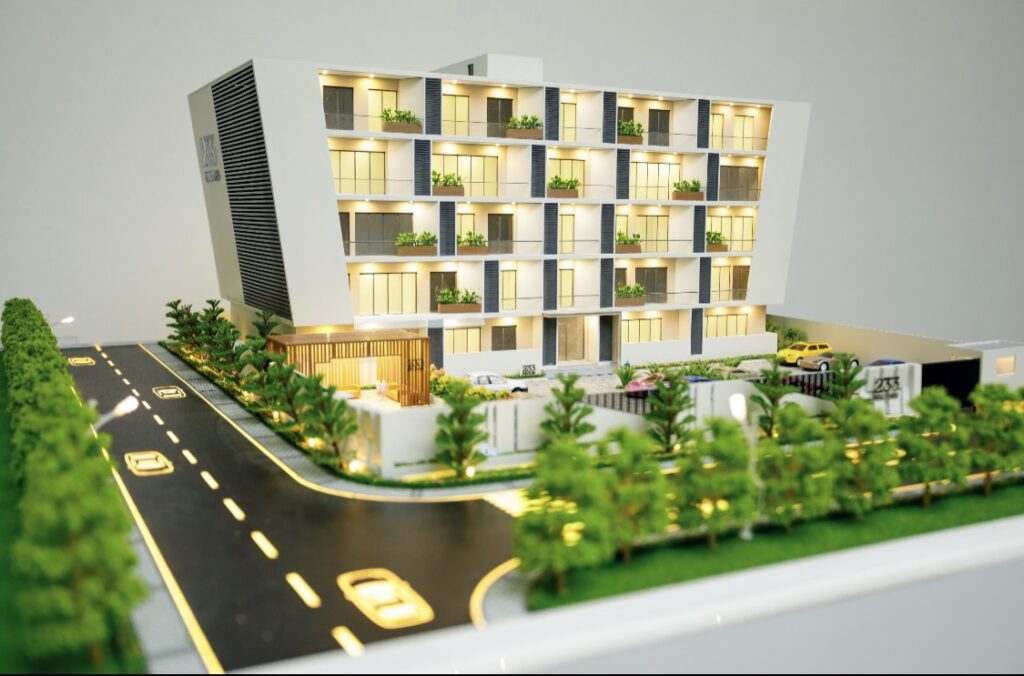
Ghana, the land of gold, cocoa, and now, a rising star in the real estate investment scene! Yes, you heard it right, folks. Ghana is not just known for its natural resources and vibrant culture; it’s also becoming quite the hot spot for property investors. Let me tell you why. Firstly, let’s talk about affordable property prices. Unlike some countries where buying a house is like selling your soul to the devil, Ghana offers a much more pocket-friendly option. You can actually find decent properties without sacrificing your firstborn child, which is always a plus, right? And if that wasn’t enticing enough, how about high rental yields? Ghana is experiencing a rising demand for rental properties, especially in its major cities like Accra and Kumasi. So, if you have a property to rent out, you’ll be swimming in cash like Scrooge McDuck. Cha-ching! But wait, there’s more! Ghana is also seeing a wave of emerging residential and commercial developments. The skyline is changing, my friends, with new apartment complexes, shopping malls, and office buildings popping up left and right. So, if you want to be a part of this exciting growth, now’s the time to jump on the real estate bandwagon. Now, let me sprinkle some personal touch to this. Picture yourself sipping on some fresh coconut water while basking on the white sandy beaches of Ghana. Ah, the perfect setting to enjoy the fruits of your profitable real estate investment. And with Ghana’s warm hospitality and rich cultural diversity, you’ll feel right at home in no time. But hold your horses, my friend. Before you start packing your bags and booking a one-way ticket to Accra, there are a few things you should know. Like any investment, there are risks and challenges. Land acquisition and ownership issues, infrastructure deficiencies, and bureaucratic processes can sometimes make you want to pull your hair out. So, be prepared to navigate through these hurdles with the patience of a saint. In a nutshell, Ghana is a gold mine for real estate investment opportunities. With affordable property prices, high rental yields, and a flurry of emerging developments, it’s like hitting the jackpot, minus the slot machine. However, it’s not all sunshine and rainbows, as challenges and risks come hand in hand. But, if you’re willing to take the plunge and ride the waves, Ghana might just be the perfect destination for your real estate dreams. Now, hold on tight and keep reading, because we’ve got more fascinating insights into Ghana’s real estate scene coming your way. Trust me, you don’t want to miss it. So, stay tuned, my friend!
The Potentials of Ghana’s Real Estate Market
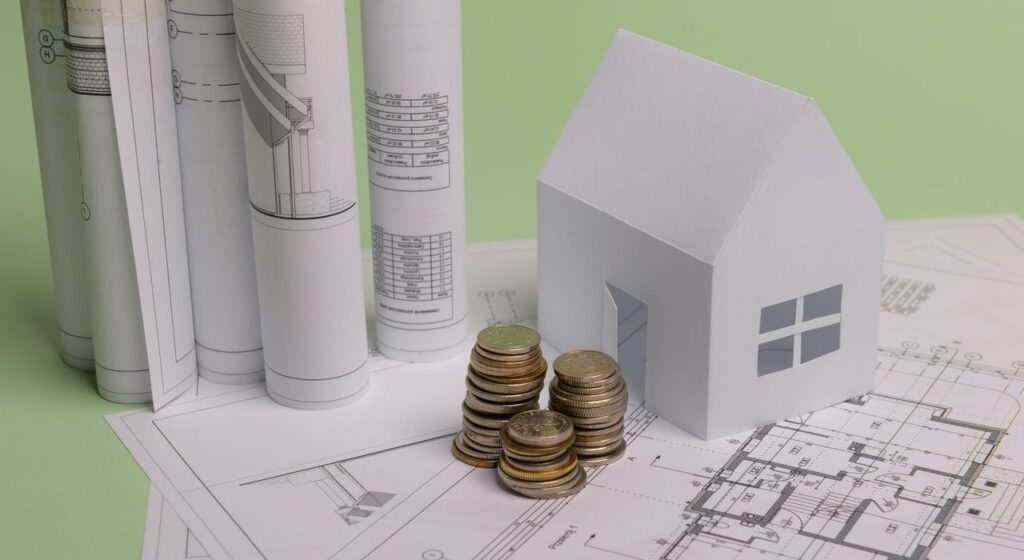
Ghana: The Rising Star of Real Estate Investment in Africa Welcome, fellow real estate enthusiasts, to a blog about the untapped potential of Ghana’s real estate market. Get ready for a rollercoaster ride through facts, figures, and a touch of quirkiness that will leave you convinced that Ghana is the place to be when it comes to real estate investment in Africa. The Potentials of Ghana’s Real Estate Market: Picture this: a stable economy, a political landscape that actually makes sense (yes, you read that correctly), increasing urbanization, and a population that just keeps growing. Sounds like a dream, doesn’t it? Well, dear readers, this dream is a reality in Ghana. Let’s talk about the elephant in the room – Ghana’s stable economy. Unlike some other countries in the continent (no names mentioned), Ghana has managed to keep its economic ship afloat. With a growing GDP and a business-friendly environment, this nation is a beacon of hope for investors looking to make their mark in Africa. But wait, there’s more! Ghana is not only financially stable but also experiencing rapid urbanization. The urban population is on the rise, and guess what? They need places to live, work, and play. That’s where the magic of Ghana’s real estate market comes into play. With increased demand for residential and commercial spaces, the opportunities for investment are simply staggering. Hold on tight, because we’re not done yet! Foreign direct investment is pouring into Ghana like never before. The government is actively encouraging investment in the real estate sector, and it’s not just empty promises. Infrastructure development is taking place at a rapid pace, creating a solid foundation for future growth. Who said Africa can’t have nice things? Wrap Up: Well, my fellow adventure-seeking investors, we’ve barely scratched the surface of Ghana’s real estate potential. Affordable property prices, high rental yields, emerging residential and commercial developments, a fast-growing expatriate community, government initiatives, and plenty more exciting factors await us in this land of opportunity. So, buckle up, and let’s dive deeper into the world of Ghanaian real estate. Because let’s be honest, who wants to invest in boring old stable markets when you can embark on an exhilarating real estate journey in Ghana? Stay tuned for more!
Money Laundering in the Real Estate Industry in Ghana

Money laundering in the real estate industry is a significant concern in Ghana, as it poses various risks to the economy and the integrity of the property market. Criminals exploit the sector’s loopholes to legitimize illicit funds, making it essential to address this issue effectively. Challenges and Impacts: Anonymity and Concealment: The real estate sector’s lack of transparency can facilitate money laundering, allowing criminals to hide their identities and the origins of illegal funds. This hampers law enforcement’s ability to track and prevent illicit financial activities. Inflated Property Prices: Money laundering inflates property prices in certain areas, making housing less affordable for legitimate buyers. This contributes to the housing crisis and can lead to social unrest and instability. Undermining Economic Growth: Money laundering weakens Ghana’s financial system, reducing investor confidence and economic growth. The flow of illicit funds distorts market dynamics and undermines the overall economy. Lost Tax Revenue: Money launderers avoid paying taxes on their illicit gains, leading to a government tax revenue loss. This impacts the funding of public services and infrastructure development. Measures to Combat Money Laundering: Enhanced Due Diligence: Real estate professionals should conduct rigorous due diligence on clients to verify the source of their funds and identify suspicious transactions. Regulatory Compliance: Strengthening anti-money laundering regulations and enforcing strict compliance measures is crucial to deter illicit activities in the real estate sector. Information Sharing: Collaboration between law enforcement agencies, financial institutions, and real estate entities can improve intelligence sharing and facilitate the detection of suspicious activities. Customer Identification: Introducing customer identification measures, such as Know Your Customer (KYC) requirements, can help identify and prevent money laundering schemes. Technological Solutions: Implementing advanced technologies like blockchain can increase property transaction transparency and reduce money laundering risk. Conclusion: Addressing money laundering in Ghana’s real estate industry is crucial to maintain a transparent and sustainable property market. Strengthening regulations, promoting transparency, and encouraging collaboration among stakeholders will help mitigate the risks associated with money laundering, ensuring a secure and thriving real estate sector that contributes to the country’s economic growth and development.
High Cost of Building Materials in Ghana, Causes and Effects on the Housing Sector.

The high cost of building materials in Ghana has had significant impacts on the housing sector, affecting affordability, construction activity, and overall development. Understanding the causes and effects of this issue is crucial for finding solutions and promoting a more sustainable housing market. Causes: Limited Local Production: Ghana relies heavily on imported building materials, which incurs transportation costs, import duties, and taxes. The limited local production capacity exacerbates the dependence on imports, driving up costs. Currency Fluctuations: Frequent fluctuations in currency exchange rates can significantly impact the cost of imported building materials. When the local currency weakens against major currencies, the cost of imported materials increases, making them more expensive for buyers. High Production Costs: Factors such as the cost of raw materials, labor, energy, and overhead expenses contribute to the high production costs of building materials. These costs are often passed on to consumers, resulting in higher prices. Inadequate Infrastructure: Insufficient transportation networks and storage facilities hinder the efficient distribution of building materials, adding extra costs to the supply chain and increasing the overall price. Importation Processes: Lengthy importation processes, including bureaucratic procedures and delays at ports, can increase the cost of building materials due to storage and handling charges incurred during the waiting period. Effects on the Housing Sector: Affordability Challenges: The high cost of building materials directly affects the affordability of housing. It becomes increasingly difficult for individuals, businesses, and the government to undertake construction projects due to the higher expenses involved. This results in limited access to affordable housing options. Slow Construction Activity: The high cost of building materials can lead to a slowdown in construction activity. This negatively impacts the growth of the construction industry, reduces employment opportunities, and hampers the development of infrastructure and housing projects. The slow construction activity further contributes to the existing housing deficit. Increased Housing Costs: Higher building material costs translate into increased housing costs, making it challenging for people to afford decent and quality housing. This exacerbates the housing crisis, particularly for low and middle-income individuals and families, leading to overcrowding, informal settlements, and inadequate living conditions. Decreased Investment in the Housing Sector: The high cost of building materials deters real estate investors and developers from investing in Ghana. This decreases investment in the housing sector, which affects the supply of housing units and slows down the overall development of the sector. Inequality and Social Implications: The high cost of building materials worsens the inequality gap in housing. It creates a divide between those who can afford quality housing and those who cannot. This perpetuates social disparities, with the most vulnerable segments of the population being disproportionately affected. Addressing the high cost of building materials requires a comprehensive approach: Promoting Local Production: Encouraging local production of building materials can reduce dependence on imports and transportation costs. Supporting local manufacturers and improving their production capacity can lead to more affordable materials. Improving Infrastructure: Investing in transportation networks, storage facilities, and logistics can enhance the efficiency of material distribution and reduce costs. Upgrading road networks, modernizing ports, and streamlining importation processes will contribute to a more cost-effective supply chain. Policy Interventions: Implementing policies that support affordable housing, such as tax incentives for developers, subsidies for low-income households, and regulations that promote sustainable construction practices, can contribute to reducing building material costs. Research and Innovation: Investing in research and development can lead to innovative solutions for reducing the cost of building materials. Exploring alternative materials, sustainable construction techniques, and energy-efficient designs can help mitigate costs in the long run. Capacity Building: Providing training and capacity building programs for local manufacturers, contractors, and construction professionals can enhance their skills and efficiency, reducing production costs and ultimately impacting the cost of building materials. By addressing the causes and effects of the high cost of building materials, Ghana can promote affordability, stimulate construction activity, and create a more inclusive housing market that meets the needs of all its citizens.
